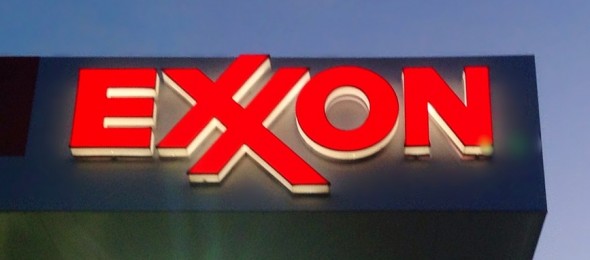The Ninth District Court of Appeals in Beaumont has ordered ExxonMobil to arbitrate a dispute with an insurance company. In Lexington Insurance Co. v. Exxon Mobil Corp., et al., No. 09-16-00357-CV, (Tex. App. – Beaumont, April 27, 2017), a fire occurred at an ExxonMobil oil refinery in 2013. Unfortunately, several workers were hurt and two others were killed as a result.
Three of the injured workers were third-party contractors who were employed by Brock Services. Prior to the fire, ExxonMobil contracted with Brock Services to provide painting and other services at the Beaumont facility. As part of the contractor agreement, Brock Services was required to obtain a liability insurance policy and name ExxonMobil as an additional insured. Prior to commencing work at the oil refinery, Brock Services obtained an umbrella policy from Lexington Insurance Company.
Following the refinery fire, ExxonMobil demanded payment from Lexington Insurance under the terms of the umbrella policy. After the insurer did not respond to ExxonMobil’s claim, the oil company filed a lawsuit against Lexington Insurance in the 136th District Court of Jefferson County. Lexington Insurance responded to the lawsuit by filing a motion to compel the dispute to arbitration based on the language included in the umbrella policy that was purchased by Brock Services. The trial court denied the insurer’s motion and Lexington Insurance filed an interlocutory appeal with Texas’ Ninth District in Beaumont.
On appeal, ExxonMobil asserted that the oil company was not bound by the agreement to arbitrate that was included in the umbrella policy “because Brock Services acquired the policy, it did not negotiate to have a policy that contained an arbitration clause, and it is an additional insured under the agreement.” The Beaumont court disagreed and stated:
However, Exxon cannot seek to recover under the terms of Lexington’s policy and at the same time avoid the provisions in the policy that it disfavors. Under the doctrine of direct benefits estoppel, non-signatories to arbitration agreements may be bound to the arbitration clause of a contract when the plaintiff is suing seeking to enforce all of the other terms of a written agreement. See In re Kellogg Brown & Root, Inc., 166 S.W.3d 732, 739-40 (Tex. 2005) (orig. proceeding) (explaining that under the doctrine of direct benefits estoppel, a non-signatory plaintiff seeking to benefit under a contract cannot avoid the contract’s arbitration clause). Given that Exxon is suing Lexington on Lexington’s policy, we conclude that Exxon cannot avoid the umbrella policy’s arbitration clause. Id.; In re FirstMerit Bank, N.A., 52 S.W.3d 749, 755-56 (Tex. 2001) (holding that a non-signatory subjected itself to the contract’s terms by suing on the contract, including the contract’s arbitration agreement).
The appellate court also dismissed ExxonMobil’s claim that enforcing the arbitration provision included in the umbrella policy against the oil company would be unconscionable. According to the court:
When considered in relation to the terms of Exxon’s written agreement with Brock Services, the evidence before the trial court failed to demonstrate that the arbitration clause in Lexington’s umbrella policy is either substantively or procedurally unconscionable. We conclude that Lexington has the right to enforce the umbrella policy’s arbitration agreement given that Exxon’s claims against Lexington are based on the policy.
With regard to the parties’ duty to arbitrate, the Ninth District stated:
We express no opinion about whether the trial court properly construed Lexington’s umbrella policy in resolving the parties’ dispute. We also express no opinion regarding the merits of the parties’ arguments about the appropriate method for resolving the coverage dispute. Once Lexington and Exxon disagreed about whether the policy covered the casualty, and Lexington established that the umbrella policy contained a valid arbitration agreement that required disputes over coverage to be arbitrated, the trial court was required to submit the matter to arbitration regardless of the merits of the respective parties’ arguments. Id. We hold that the trial court erred by considering the merits of the coverage dispute before sending the matter to arbitration.
The Beaumont Court of Appeals then rejected ExxonMobil’s asserted defenses to arbitration before holding:
“[A] litigant who sues based on a contract subjects him or herself to the contract’s terms.” In re FirstMerit Bank, N.A., 52 S.W.3d at 755. We conclude that Exxon is not entitled to enforce some of the umbrella policy’s terms but to defeat others. See In re Weekley Homes, L.P., 180 S.W.3d 127, 135 (Tex. 2005) (orig. proceeding).
Finally, Texas’ Ninth District Court of Appeals in Beaumont reversed the trial court’s order denying Lexington Insurance’s motion to compel arbitration and remanded the case.
Photo credit: JeepersMedia via Foter.com / CC BY














